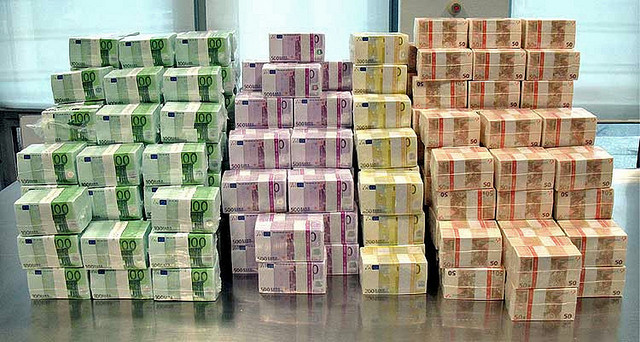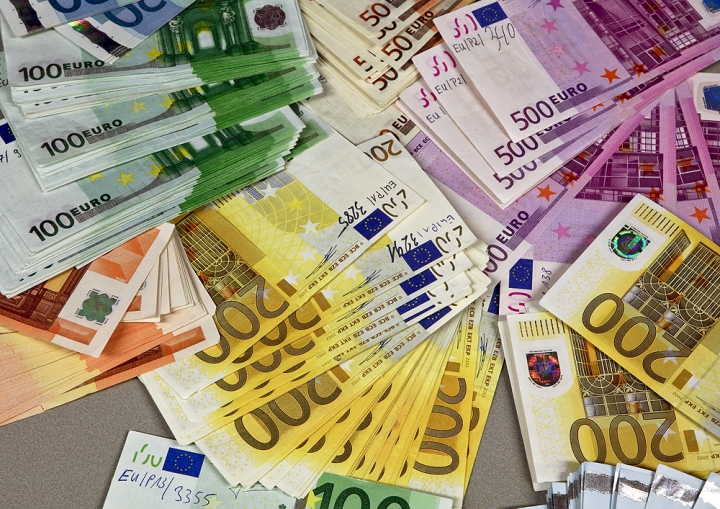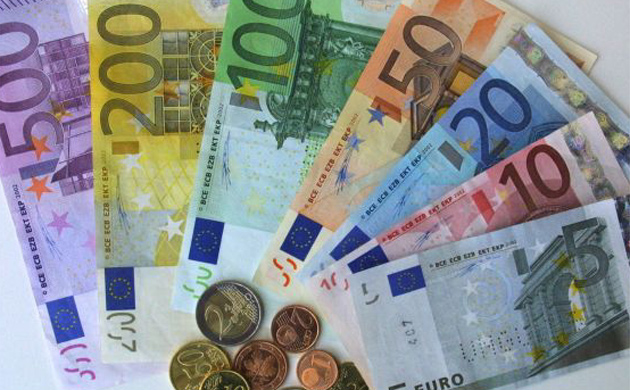I previously posted updates on the state of play in the MFF negotiations on 29 April and 15 May last. At the end of April, the General Affairs Council had just agreed the ‘political guidance’ for the Irish Presidency to start discussions with the Parliament’s negotiating team. However, the Parliament had refused to attend the first proposed trilogue meeting with the Presidency and Commission because of the Council’s unwillingness to commit to meet the anticipated gap in payment appropriations in the EU’s 2013 budget.
A trilateral meeting of Presidents was held on May 6 which broke this deadlock (see my 15 May post for details).… Read the rest
A race against time
Two important meetings as part of the process of agreeing a CAP reform took place earlier this week – the Agricultural Council on Monday and the Ecofin Council on Tuesday. The Agricultural Council meeting was notable for the success of the Irish Presidency in getting agreement on a compromise mandate on the Common Fisheries Policy reform after 36 hours of negotiations which it is hoped will be the basis for a political agreement with the Parliament before the end of the Irish Presidency in June.
We are not yet at the same point with the CAP reform dossier (see this recent update to the Irish Parliament by Simon Coveney, the Irish Minister representing the Council in the trilogue negotiations and this view from Mairead McGuinness, one of the shadow rapporteurs in the European Parliament).… Read the rest
MFF negotiations blown off course as European Parliament plays poker
Last week (Monday 22 April) the General Affairs Council (GAC) gave ‘guidance’ to the Irish Presidency for the negotiations with the European Parliament on concluding the MFF negotiations. The Irish Presidency’s objective is to reach agreement with the Parliament on the MFF by the end of June and to translate the overall MFF agreement into legal texts.
According to the conclusions of the meeting:
… Read the restMinisters supported the presidency’s efforts to find a compromise with the European Parliament on the next MFF in a timely manner. Ministers expressed their willingness to discuss the four key elements of the European Parliament’s resolution (flexibility, revision, own resources and unity of the budget).
Implications of the European Council MFF agreement for the agricultural environment
This is a shortened version of a post which was first written for the Institute for International and European Affairs EnvironmentNexus blog
From the perspective of the agricultural environment, there are three elements in the European Council conclusions on the EU’s Multi-annual Financial Framework on 7-8 February which should be noted.
The first element is the general commitment that climate action objectives will represent at least 20% of EU spending in the period 2014-2020 and should be reflected in the appropriate instruments to ensure that they contribute to strengthening energy security and building a low-carbon, resource efficient and climate resilient economy.… Read the rest
What the proposed MFF has for agriculture?
Herman Van Rompuy, President of the European Council introduced the acceptance of the new MFF yesterday on his Twitter page by writing that
Deal done! The European Council has agreed on MFF for the rest of the decade. Worth waiting for.
Although this is not the final agreement as the European Parliament still has to confirm the Council decision, it is highly unlikely that the EP risks the hard-fought agreement reached at the Council. Therefore, the playing arena for agriculture in the next seven years is set in the final conclusions published by the Council.
In general, the deal reached limits the maximum possible expenditure for a European Union of 28 Member States (with Croatia’s accession this year) to €960 billion in commitments, corresponding to 1.0% of the EU’s GNI.… Read the rest
Will the MFF be agreed this week?
Heads of State and Government meet Thursday and Friday 7 and 8 February in the first European Council meeting of 2013. A second attempt to reach agreement on a Multi-annual Financing Framework (MFF) for the 2014-2020 period is on the agenda. Prime Ministers and European Ministers have been criss-crossing Europe for the past few weeks to drum up understanding and support for their various national positions, with Merkel and Hollande meeting in Paris today Wednesday on the day before the summit begins.
Herman van Rompuy, the Council President, is playing his cards very close to his chest. Unlike prior to the earlier failed attempt to reach agreement in November last year, a third draft of the Council conclusions (HvR-III) will not be formally circulated before the meeting (see this post for commentary on HvR-I and this post for commentary on HvR-II).… Read the rest
The MFF numbers – where we stand
Later this week (7-8 February), the European Council will meet for a second time to try to agree the parameters for the EU’s Multi-annual Financial Framework (MFF) for the 2014-2020 period. The prospects for success remain uncertain; tomorrow I will review the main outstanding issues and the likely flashpoints when the Heads of State and Government meet.
The purpose of this post is to present the numbers as published in successive drafts of the MFF since the Commission’s original proposal in June 2011 and a comparison with the numbers in the 2007-2013 MFF. This provides the context to evaluate the blueprint which European Council President Herman van Rompuy will put before the leaders and any potential agreement.… Read the rest
Welcome to the Irish Presidency
Ireland took over the EU Presidency from 1 January 2013 and the Irish Minister for Agriculture, Food and the Marine, Simon Coveney, will chair the Council of Agricultural Ministers for the next six months. Coveney is an energetic Minister and the Irish have an experienced bunch of officials (see who’s who in the Irish delegation) who will do everything to ensure an agreement on CAP reform on their watch.
Securing an agreement under the Irish Presidency is conceivable. But I am going to argue that the institutional decision-making process between the Council and the Parliament, as well as the linkage with the Multi-annual Frinancial Framework (MFF) negotiations, will make it extraordinarily difficult, even assuming that the European Council will reach an agreement on the next MFF at its next meeting on 7-8 February 2013.… Read the rest
Correction: Rural development funds allocation
There has been much interest in the provenance of the figures on the allocation of rural development funding between member states which I discussed in this post earlier this week. In the post I said that these were figures circulated by Herman van Rompuy during the special European Council meeting to discuss the MFF on November 22-23. Having spoken with some people who were present at the Council meeting I can now confirm that Van Rompuy did not circulate these figures at that meeting. I believe the figures were prepared by well-placed sources but they are not official figures and I regret any confusion which my incorrect assignation may have caused.… Read the rest
Rural development funds allocation hits new member states
Update 15 December 2012: I have now learned that I was incorrect to attribute the table of allocation of rural development funds to Van Rompuy in this post and these figures were not circulated at the European Council meeting as I suggest. I regret the error but I have left the post stand unedited as an example of one possible distribution of funds being discussed in the negotiations. But as of this date no official proposed allocation has been made, see fuller discussion here)
In previous posts I had wondered how member states were expected to come to an agreement on the MFF for the 2014-2020 period at the special European Council meeting at the end of the November without being aware of the proposed allocation of Pillar 2 rural development funds under the CAP.… Read the rest





